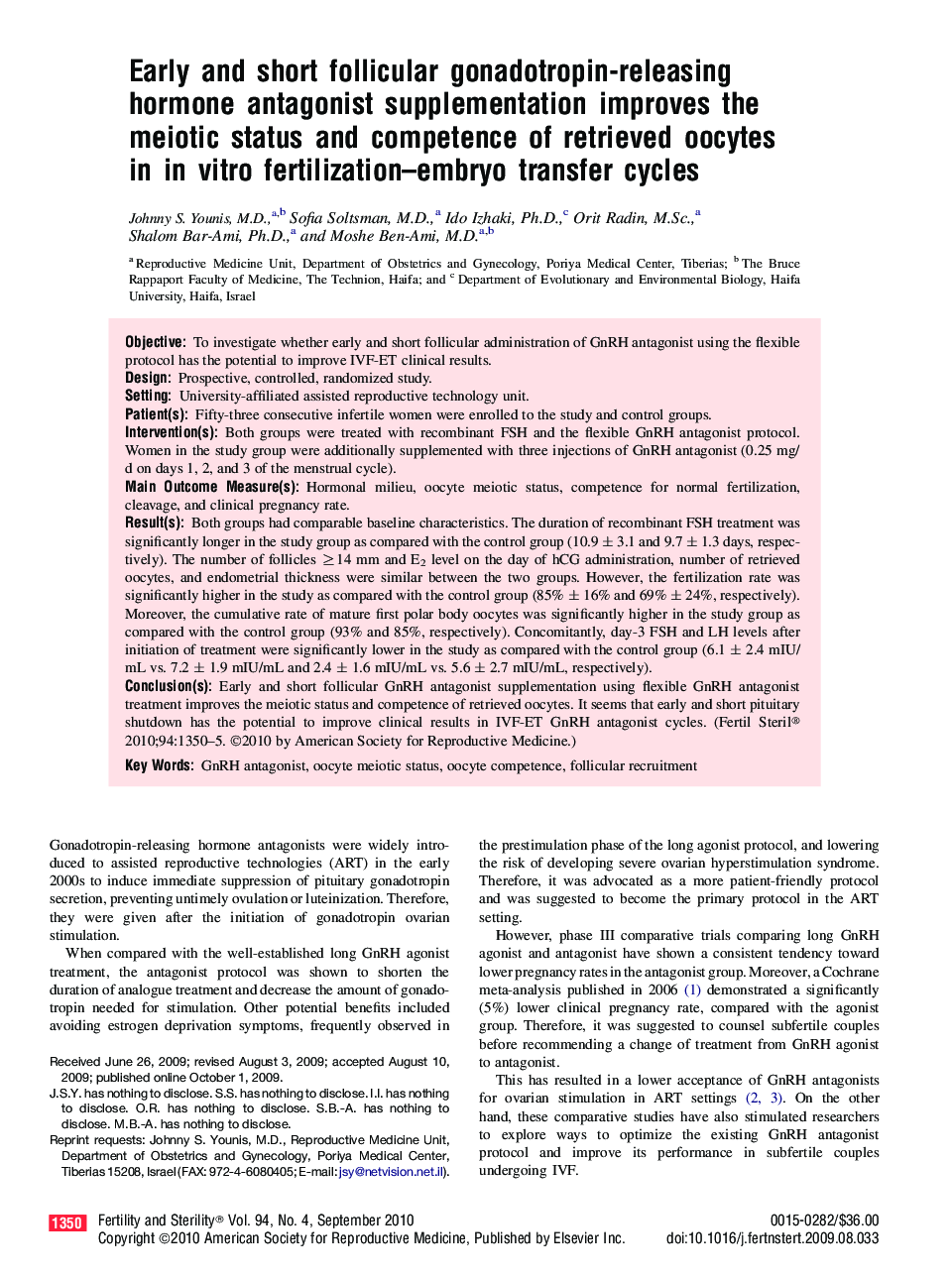| Article ID | Journal | Published Year | Pages | File Type |
|---|---|---|---|---|
| 3938146 | Fertility and Sterility | 2010 | 6 Pages |
ObjectiveTo investigate whether early and short follicular administration of GnRH antagonist using the flexible protocol has the potential to improve IVF-ET clinical results.DesignProspective, controlled, randomized study.SettingUniversity-affiliated assisted reproductive technology unit.Patient(s)Fifty-three consecutive infertile women were enrolled to the study and control groups.Intervention(s)Both groups were treated with recombinant FSH and the flexible GnRH antagonist protocol. Women in the study group were additionally supplemented with three injections of GnRH antagonist (0.25 mg/d on days 1, 2, and 3 of the menstrual cycle).Main Outcome Measure(s)Hormonal milieu, oocyte meiotic status, competence for normal fertilization, cleavage, and clinical pregnancy rate.Result(s)Both groups had comparable baseline characteristics. The duration of recombinant FSH treatment was significantly longer in the study group as compared with the control group (10.9 ± 3.1 and 9.7 ± 1.3 days, respectively). The number of follicles ≥14 mm and E2 level on the day of hCG administration, number of retrieved oocytes, and endometrial thickness were similar between the two groups. However, the fertilization rate was significantly higher in the study as compared with the control group (85% ± 16% and 69% ± 24%, respectively). Moreover, the cumulative rate of mature first polar body oocytes was significantly higher in the study group as compared with the control group (93% and 85%, respectively). Concomitantly, day-3 FSH and LH levels after initiation of treatment were significantly lower in the study as compared with the control group (6.1 ± 2.4 mIU/mL vs. 7.2 ± 1.9 mIU/mL and 2.4 ± 1.6 mIU/mL vs. 5.6 ± 2.7 mIU/mL, respectively).Conclusion(s)Early and short follicular GnRH antagonist supplementation using flexible GnRH antagonist treatment improves the meiotic status and competence of retrieved oocytes. It seems that early and short pituitary shutdown has the potential to improve clinical results in IVF-ET GnRH antagonist cycles.
